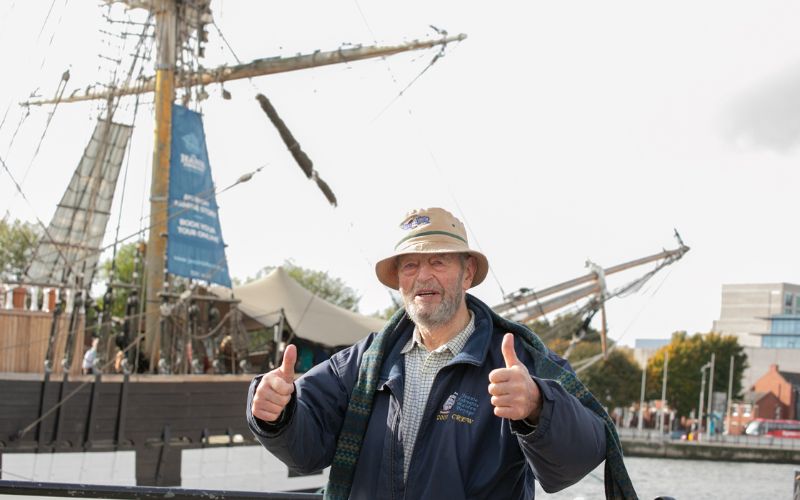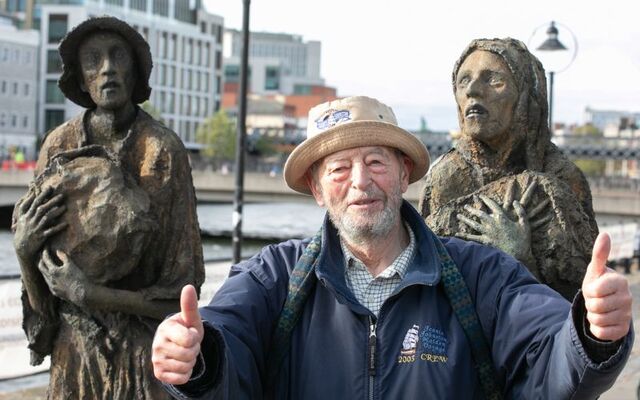Jim Callery, the founder of the National Famine Museum at Strokestown Park in Co Roscommon, arrived in triumph at EPIC, the Irish Emigration Museum in Dublin, on Tuesday, October 15, his 90th birthday.
Arriving in Ireland's capital city, Callery had completed the entire 165km of the National Famine Way and raised almost €55,000 for immigration charities in the process.
Callery did the walk in remembrance of Strokestown's Missing 1,490 famine emigrants.
His wife Adeline and two sisters - Eileen O Connell, 96, and Nanette Callery, 94 - were there to welcome him in Dublin on Tuesday, along with four generations of his family.
The last stage was a short, glorious walk from Cross Guns Bridge at the third lock on the Royal Canal to Custom House Quay, the Famine Statues, and the EPIC Museum.
View this post on Instagram
"I'm delighted with how the fundraising walk on the NFW went," Callery said after completing the daunting challenge.
"I thoroughly enjoyed doing it and the support from family and friends was amazing.
"I feel younger and fitter now than when I started!"
Callery's fundraiser is still open and the nonagenarian continues to invite his friends, colleagues, and supporters to donate through his GoFundMe page.
Callery is credited with saving Strokestown Park House in 1979 and subsequently setting up Ireland's National Famine Museum there.
The Roscommon man was awarded a European Heritage Europa Nostra Award (EU Prizes for Cultural Heritage) in 1979; the citation said: “The restoration and establishment of the world renowned Irish National Famine Museum & Archive by Mr. Callery has been the largest act of private philanthropy for cultural heritage in the history of modern Ireland."

Jim Callery arrives in Dublin. (Paul Kelly)
The National Famine Way™ traverses six counties in Ireland and is a collaboration between Waterways Ireland, the Irish Heritage Trust and the county councils along the route. The local authorities involved are Roscommon, Longford, Westmeath, Meath, Kildare, Fingal, and Dublin.
The symbol of the National Famine Way™ is a pair of children’s shoes displayed at the National Famine Museum. The trail is waymarked by bronze replicas as a poignant reminder of the journey the 1,490 evicted tenants made.
The National Famine Way™ is open to walkers at any time and the route and associated stories can be followed through a free app. Walkers can also purchase an official passport to get stamped along the route.




Comments